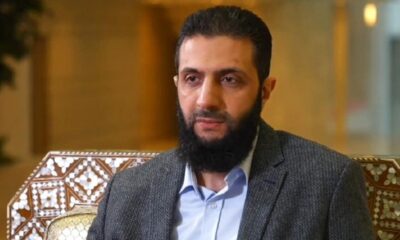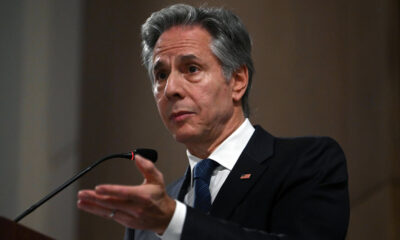Latest News
US encourages Afghanistan’s neighbors, including Pakistan, to accept refugees

The United States "strongly" encouraged Afghanistan's neighbors, including Pakistan, to allow entry for Afghans seeking protection and urged them to uphold obligations in treatment of refugees, the U.S. State Department said on Thursday.
Pakistan has set a Nov. 1 deadline for all illegal immigrants, including hundreds of thousands of Afghans, to leave the country or face forcible expulsion.
Some 1.73 million Afghans in Pakistan have no legal documents, according to Islamabad, which alleged that Afghan nationals carried out over a dozen suicide bombings this year.
Pakistan has hosted the largest number of Afghan refugees since the Soviet invasion of Kabul in 1979. Islamabad says the number of Afghan refugees in Pakistan totaled 4.4 million.
Some 20,000 or more Afghans who fled the 2021 takeover of Afghanistan by the Islamic Emirate of Afghanistan (IEA) are in Pakistan awaiting the processing of their applications for U.S. Special Immigration Visas (SIVs) or resettlement in the United States as refugees.
"We strongly encourage Afghanistan's neighbors, including Pakistan, to allow entry for Afghans seeking international protection and to coordinate with international humanitarian organizations ... to provide humanitarian assistance," a U.S. State Department spokesperson told reporters on Thursday, Reuters reported.
Pakistan says the deportation process would be orderly and conducted in phases and could begin with people with criminal records.
IEA officials have said Pakistan's threat to force out Afghan migrants was "unacceptable".
Relations have deteriorated between Pakistan and Afghanistan over the past couple of years, largely over accusations that militants fighting the Pakistani state operate from Afghan territory. The IEA deny this claim.
A group of former top U.S. officials and resettlement organizations have urged Pakistan to exempt from deportation to Afghanistan thousands of Afghan applicants for special U.S. visas or refugee relocation to the United States.
Latest News
There are many differences between Syria and IEA: Ahmad al-Sharaa
Sharaa denied that he wanted to turn Syria into a version of Afghanistan.

There are many differences between Syria and the Islamic Emirate of Afghanistan (IEA), Syria's de facto leader, Ahmad al-Sharaa, has said.
In an interview with the BBC in Damascus, Sharaa denied that he wanted to turn Syria into a version of Afghanistan.
Sharaa said the countries were very different, with different traditions. Afghanistan was a tribal society. In Syria, he said, there was a different mindset.
“Afghanistan is a tribal community. Syria is completely different. The people just don’t think in the same way. The Syrian government and the ruling system will be in line with Syria’s history and culture,” he said.
He said he believed in education for women.
“When it comes to women’s education, of course. We have had universities in Idlib for more than eight years. I think the percentage of women in universities is more than 60 percent.
"We've had universities in Idlib for more than eight years," Sharaa said, referring to Syria's north-western province that has been held by rebels since 2011.
"I think the percentage of women in universities is more than 60%."
Asked whether the consumption of alcohol would be allowed, Sharaa said: "There are many things I just don't have the right to talk about because they are legal issues."
He added that there would be a "Syrian committee of legal experts to write a constitution. They will decide. And any ruler or president will have to follow the law".
The Islamic Emirate has not yet commented on Ahmad al-Sharaa’s remarks on Afghanistan.
The remarks come as girls above the sixth grade have been denied the right to education for more than three years and universities are also closed to women.
Reports suggest that the leadership of the Islamic Emirate has also recently decided to close medical institutes to girls.
Latest News
Blinken urges Syria’s HTS to learn from Islamic Emirate’s isolation
The Islamic Emirate, however, rejects Blinken’s statements and says that Afghanistan is not currently isolated from the world and that they have relations with other countries.
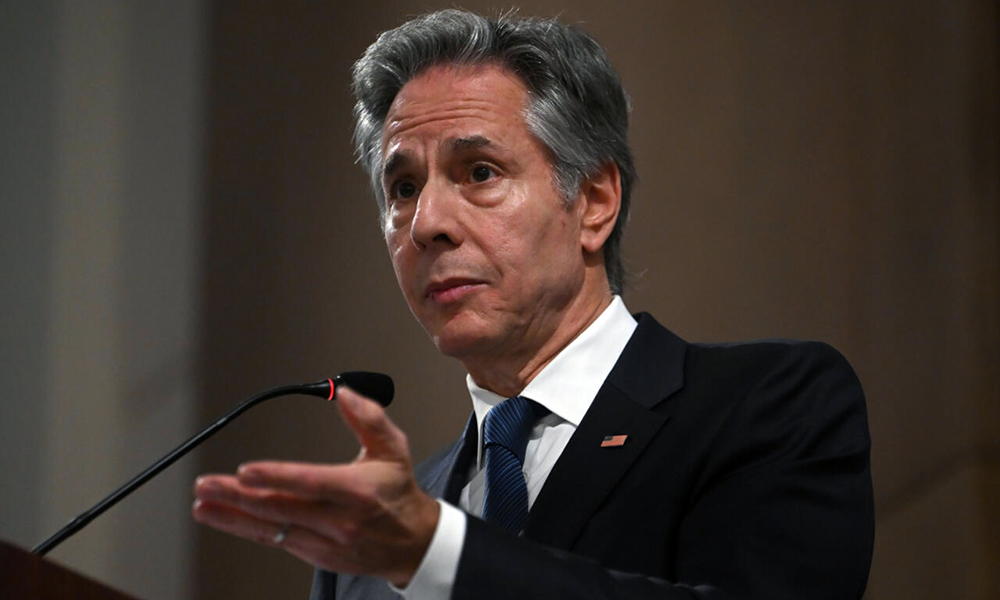
Antony Blinken, the U.S. Secretary of State, has urged Hay’at Tahrir al-Sham (HTS) in Syria to fulfill its promises of forming an inclusive government and learn from the global isolation faced by the Islamic Emirate of Afghanistan (IEA).
Speaking at the Council on Foreign Relations in New York on Wednesday, Blinken called for the establishment of a “non-sectarian” government in Syria that protects minorities and addresses security concerns.
“The Taliban (IEA) presented a more moderate face during their takeover of Afghanistan - or at least tried to - but their true nature later became evident,” he said.
As a result, the IEA remains globally isolated due to their failure to deliver on their commitments, he added.
He went on to state: “If you are an emerging group in Syria and wish to avoid such isolation, you must take specific actions to advance the country.”
Abu Mohammad al-Jolani, the leader of Syria’s HTS, has vowed that Syria will not follow the path of Afghanistan under the IEA.
Jolani has consistently advocated for protecting individual freedoms, ensuring women’s rights, and fostering a pluralistic society.
The Islamic Emirate, however, rejects Blinken's statements and says that Afghanistan is not currently isolated from the world and that they have relations with other countries.
The IEA’s spokesman Zabihullah Mujahid stated that the Islamic Emirate government has fulfilled all its commitments made in Doha.
Meanwhile, a number of Afghan experts believe that the United States is still using political and economic pressure against the Islamic Emirate to achieve its political goals.
Latest News
Two horror accidents on Kabul-Kandahar highway leave 52 dead
The Islamic Emirate has directed the relevant directorate’s to investigate the incidents to determine the exact cause of both accidents
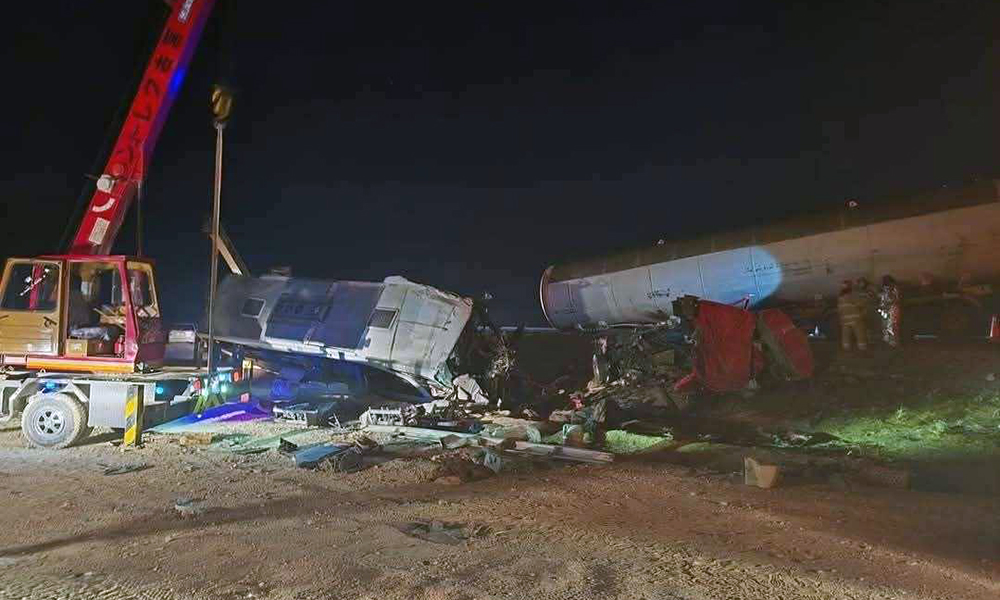
Two late-night traffic accidents in southeastern Afghanistan left at least 52 people dead and more than 65 injured, the Islamic Emirate confirmed early Thursday.
The accidents on Wednesday night happened in Ghazni province. Both accidents involved buses and one involved a fuel tanker.
According to a statement issued by the Islamic Emirate of Afghanistan (IEA) said: "It is with great regret that we learned that two fatal traffic accidents occurred on the Kabul-Kandahar highway, as a result of which 52 of our compatriots were martyred and 65 others were injured."
The Islamic Emirate has directed the relevant directorate’s to investigate the two accidents to determine the exact cause of both.
The Directorate of Information and Culture of Ghazni province meanwhile said in a statement that 47 people had died and 73 others were injured in the accidents.
The directorate stated that the injured had been taken to hospital; some of whom were in a critical condition.
One accident involved a passenger bus and a fuel tanker and the other involved a passenger bus and truck.
-

 International Sports4 days ago
International Sports4 days agoMessi vs Ronaldo: A look at their market values over the years
-

 Regional5 days ago
Regional5 days agoHezbollah chief says group lost its supply route through Syria
-
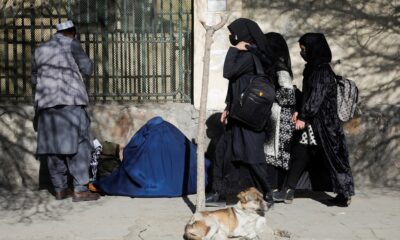
 Latest News5 days ago
Latest News5 days agoInjustices against Afghan women threaten global equality: US
-

 Sport3 days ago
Sport3 days agoATN to broadcast exciting 2025 ICC Champions Trophy live in Afghanistan
-

 World4 days ago
World4 days agoSyria’s de facto leader not interested in new conflicts despite Israeli attacks
-
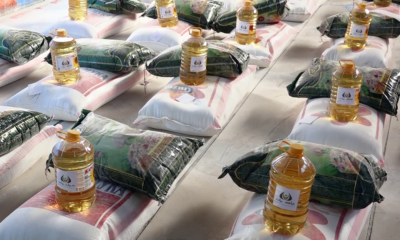
 Latest News4 days ago
Latest News4 days agoBayat Foundation delivers aid to vulnerable families in Kabul west
-

 Sport4 days ago
Sport4 days agoLanka T10: Galle Marvels co-owner arrested on match-fixing charges
-

 Sport4 days ago
Sport4 days agoRashid Khan returns to Afghanistan test squad for Zimbabwe series








